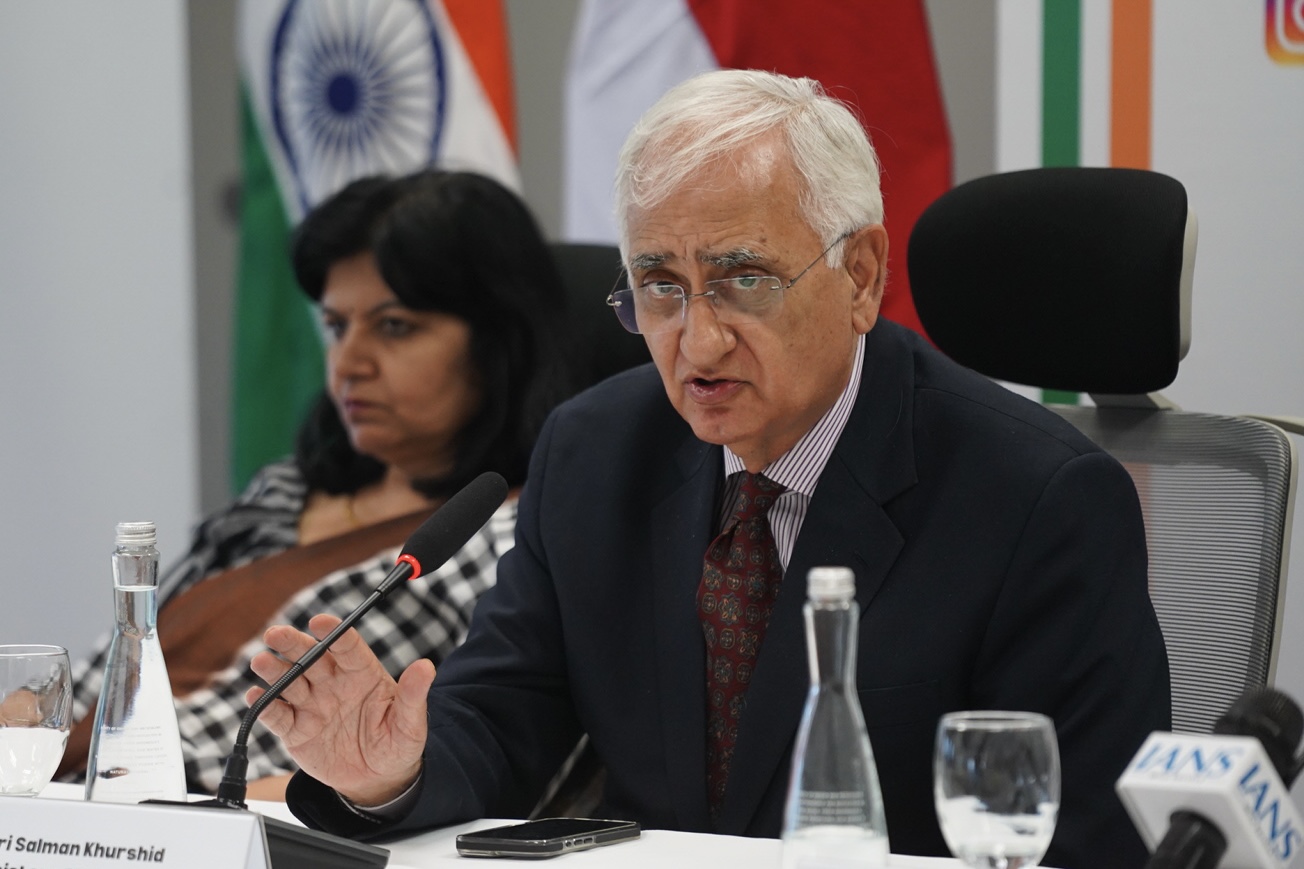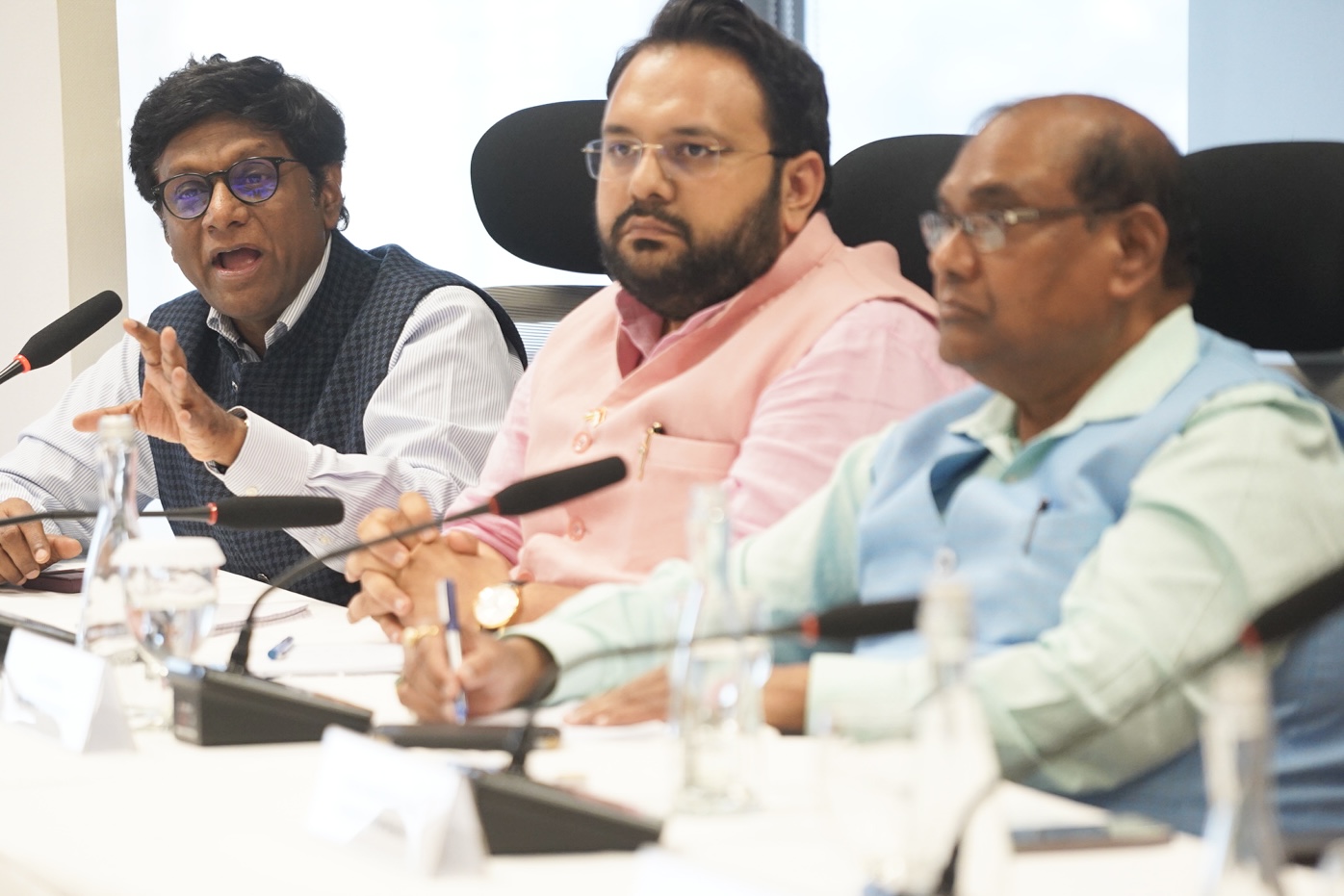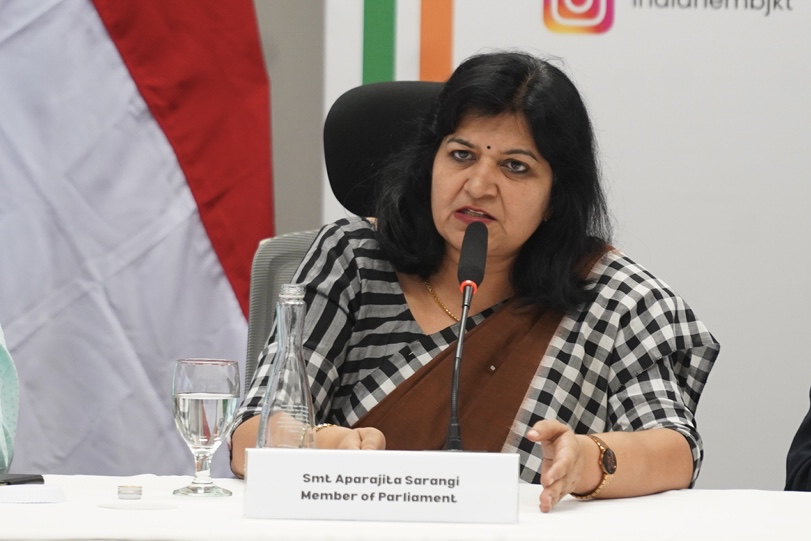India Urges Indonesia to Join Global Fight Against Terrorism
Main Takeaways
|
JAKARTA, Investortrust.id – India has called on Indonesia to strengthen bilateral cooperation in combatting terrorism, particularly through joint efforts to cut off the financial lifelines of terror networks. The message was delivered during a high-level multi-party parliamentary delegation visit, in which Indian officials stressed the need for unified global action, citing recent attacks involving Pakistani-based militants.
The event, hosted by the Embassy of India in Jakarta, on Friday, May 30, 2025, carried the theme “India’s Strong Message of Zero-Tolerance Against Terrorism” and featured senior Indian officials and parliamentarians, including former Minister of External Affairs Salman Khurshid, Ambassador (Dr.) Mohan Kumar, and Member of Parliament Aparajita Sarangi.

“Terrorism is not the enemy of one country—it is the enemy of all of humankind,” said Ambassador Kumar, now Professor of Diplomatic Practice at the Jindal School of International Affairs. “The world needs peace.”
India’s delegation urged Indonesia to act decisively ahead of the next Financial Action Task Force (FATF) Plenary, scheduled for October 20–24, 2025, in Paris, France. FATF is the global watchdog on anti-money laundering (AML) and counter-terrorism financing (CFT), setting international standards and identifying jurisdictions with strategic deficiencies. It works closely with bodies such as INTERPOL and UNODC to bolster global coordination and capacity building.

“We have formally sought the support of Indonesia,” said Kumar. “You are a very important member of FATF… and I think we can do a lot in that forum to make sure that terrorist financing, including from Pakistan, is cut off.”
He also warned that terrorist financiers have been identified as operating from within Indonesia and emphasized the importance of coordinated action to dismantle those financial flows.
Former Foreign Minister Salman Khurshid reinforced the message, referencing the Kashmir terror attacks. “Each time there is an attempt to have a conversation, we get betrayed and our citizens are put under serious pain and risk and loss of life,” he said. “We wanted to give this message that no more will we tolerate this kind of stuff.”
The Pal Gaam incident, also known as the 2025 Pahalgam attack, occurred on April 22, 2025, when five armed militants opened fire on a group of domestic tourists in Baisaran Valley near Pahalgam, Jammu and Kashmir, India. The attackers, affiliated with Lashkar-e-Taiba and its proxy The Resistance Front, targeted non-Muslim tourists, resulting in the deaths of 26 civilians and injuries to 20 others. This attack is considered the deadliest on civilians in India since the 2008 Mumbai attacks.
In response to the attack, India struck back by targeting terrorist bases in Pakistan and Pakistan Occupied Kashmir without harming civilians. When Pakistan retaliated, India neutralized air bases, prompting Pakistan to seek peace. “We owe it to our people to give a response which is a befitting response and which is a clear and firm response which we have done,” Khurshid added.
The former minister emphasized that the first step towards any future dialogue should be accountability. “One beginning that they could make is to take action to actually identify those people who perpetrated this attack against India and take action against those people,” he said. “That’s the first thing they should do if they want a conversation or talk to take place anytime in the future.”

Member of Parliament Aparajita Sarangi emphasized that India does not seek conflict. “There would be no war until there is war from that side,” she said. “Development is the main agenda of the government of India at this juncture.”
Highlighting India's status as Indonesia’s third-largest trade partner and its projected rise to become the world’s third-largest economy, she argued that stability is essential. “Peace at this juncture is not a national priority. It is a global need,” she stated. “We need to combat terrorism together.”
The delegation’s visit also referenced the Pal Gaam incident, a recent example cited to underscore the continued threat posed by cross-border terrorism and the necessity of collective regional vigilance.
Ambassador of India to Indonesia Sandeep Chakravorty offered a concluding reflection: “A lot of things are happening in the India-Indonesia corridor. With the visit of the parliamentary delegation, we found great love and support for India, and we hope to deepen parliamentary cooperation and also counterterrorism cooperation.”
India’s message, delivered on Indonesian soil, reflects an evolving diplomatic stance that tightly couples economic priorities with global security commitments. With the FATF’s next plenary session approaching, the call for Indonesia’s support underlines the need for shared vigilance in cutting the financial roots of terrorism—before the violence takes deeper root.

